Congratulations to CI Prof. Jae Kyoung Kim on his appointment to the editorial board of SIAM Journal on Life Sciences.
CI 김재경 교수가 SIAM Journal on Life Sciences의 편집위원으로 합류했습니다. 축하합니다.
Congratulations to CI Prof. Jae Kyoung Kim on his appointment to the editorial board of SIAM Journal on Life Sciences.
CI 김재경 교수가 SIAM Journal on Life Sciences의 편집위원으로 합류했습니다. 축하합니다.
On May 9, 2025, the research conducted by members of BIMAG was featured in SIAM News. The study, which focused on predicting mood episodes using only sleep and circadian rhythm features, was highlighted in an article titled “Predicting Mood Episodes Based on Sleep and Circadian Rhythm Features.”
2025년 5월 9일, BIMAG 연구진의 연구가 SIAM News에 소개되었습니다. 이 연구는 수면 및 생체 리듬 관련 특성만을 이용해 기분 에피소드를 예측하는 내용을 담고 있으며, “Predicting Mood Episodes Based on Sleep and Circadian Rhythm Features”라는 제목의 기사로 보도되었습니다.
News link: (link)
On May 9, our student Olive gave a talk on the paper “Network inference from short, noisy, low time-resolution, partial measurements: Application to C. elegans neuronal calcium dynamics” at the Journal Club.
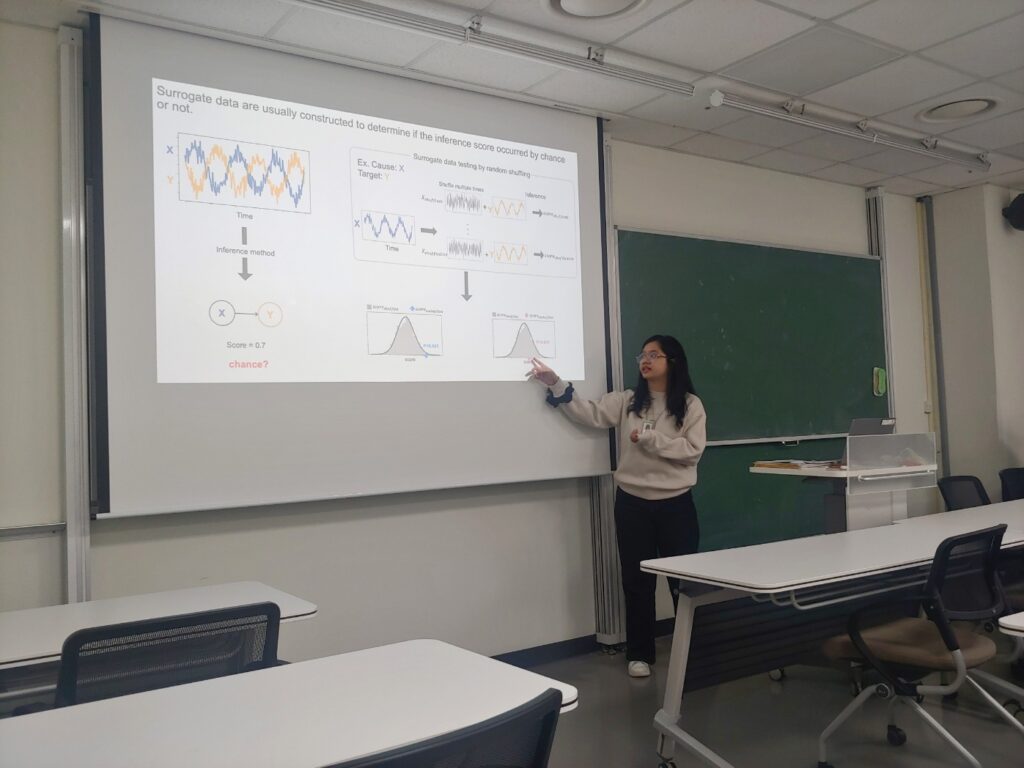
We are pleased to welcome Dr. Jin Woo Hyun to our group as a Postdoc fellow.
Dr. Jin Woo Hyun received his Ph.D. from the Department of Mathematics at Hankuk University of Foreign Studies. His research focuses on mathematical modeling and algorithmic optimization in machine learning. We sincerely welcome him to the team and look forward to his contributions!
현진우 박사가 박사 후 연구원으로 BIMAG에 합류하게 되었습니다.
현진우 박사는 한국외국어대학교 수학과에서 박사학위를 받았으며, 머신러닝 분야의 수학적 모델링 및 알고리즘 최적화 연구를 하고 있습니다. 그의 합류를 진심으로 환영하며, 앞으로의 활약을 기대합니다!
On April 19th, CI Prof. Jae Kyoung Kim gave a public talk at the World Science Forum 2025, held at the Daejeon Convention Center. His talk was titled, “The Beginning and End of AI is Mathematics: Where is the Math We’ve Learned Actually Used?”
2025년 4월 19일, CI 김재경 교수가 대전컨벤션센터에서 열린 2025 세계과학포럼(World Science Forum)에서 “AI의 시작과 끝은 수학: 우리가 배운 수학, 어디에 쓰일까?”라는 제목으로 대중 강연을 진행했습니다.
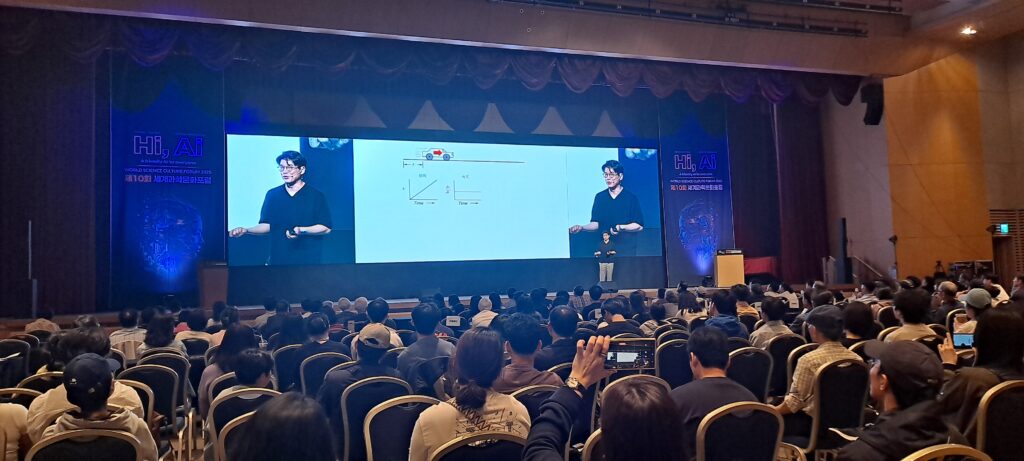
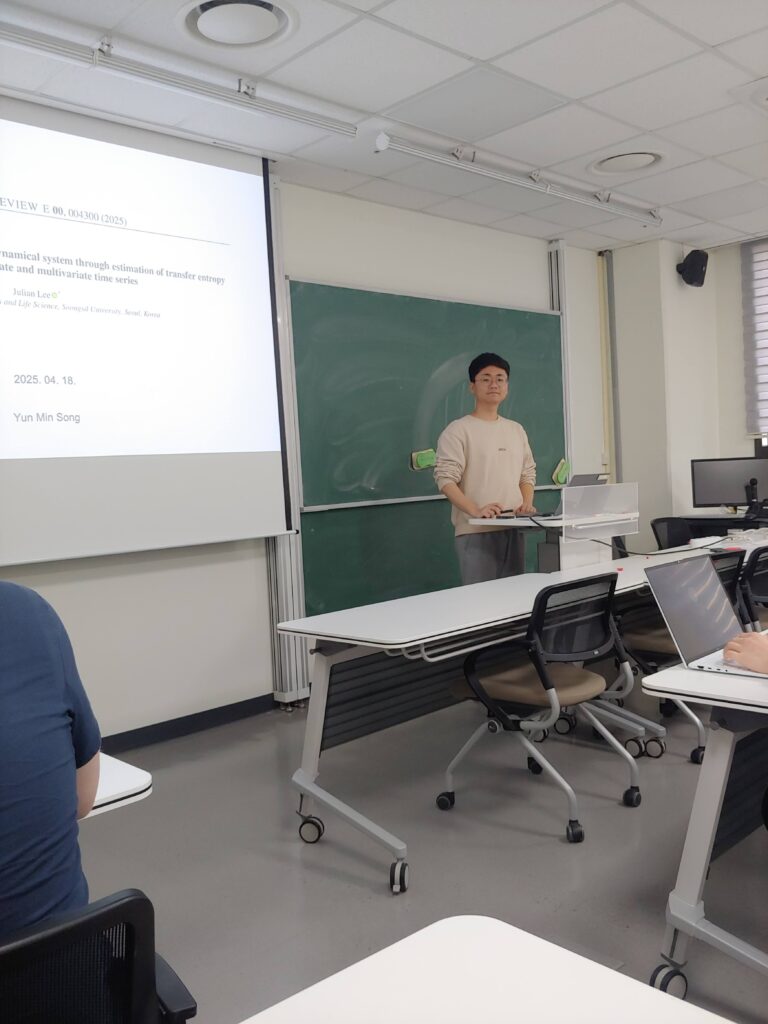
On April 18, our postdoc Dr. Yun Min Song gave a talk on the paper “Identifying key drivers in a stochastic dynamical system through estimation of transfer entropy between univariate and multivariate time series” at the Journal Club.
The paper by BIMAG members, “Beyond the Michaelis–Menten: Accurate Prediction of Drug Interactions Through Cytochrome P450 3A4 Induction,” published in Clinical Pharmacology & Therapeutics in 2023, has been ranked among the Top 10% Most-Viewed Papers of the Year. Congratulations!
지난 2023년 Clinical Pharmacology & Therapeutics 저널에 출판된 BIMAG 멤버들의 논문
“Beyond the Michaelis–Menten: Accurate Prediction of Drug Interactions Through Cytochrome P450 3A4 Induction” 이 2023년 가장 많이 조회된 상위 10% 논문에 선정되었습니다. 축하합니다!

Congratulations to CI Prof. Jae Kyoung Kim on his appointment to the editorial board of PLOS Computational Biology.
CI 김재경 교수가 PLOS Computational Biology 저널의 편집위원으로 합류했습니다. 축하합니다.
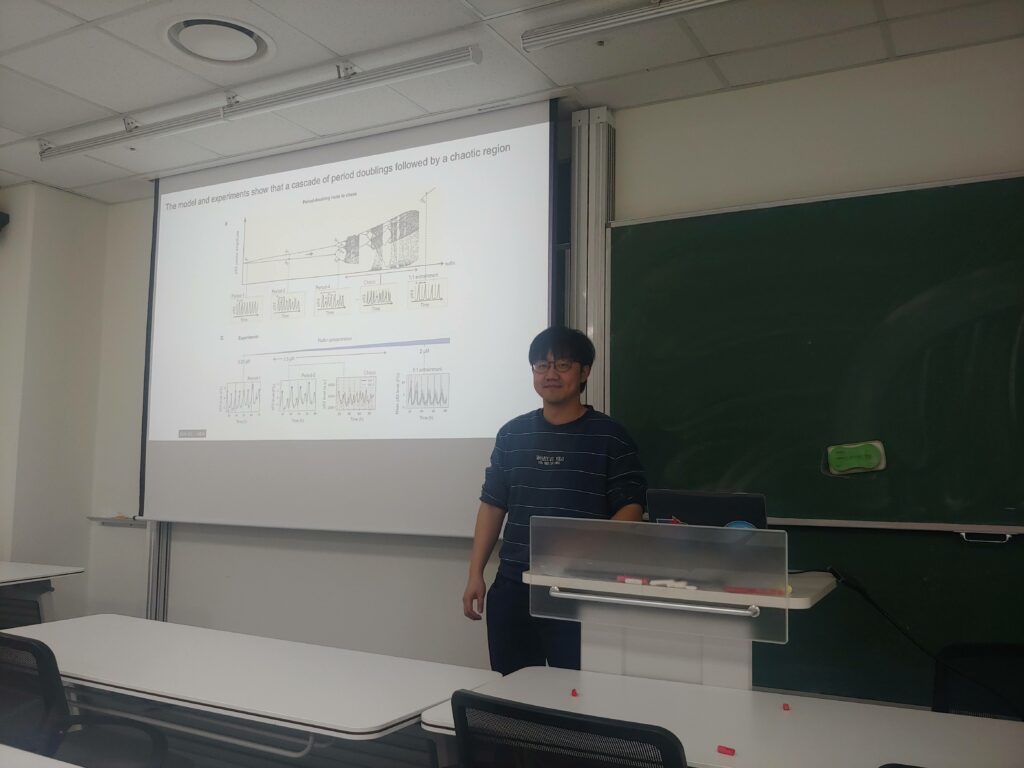
On April 11, our postdoc Dr. Eui Min Jeong gave a talk on the paper “Entrainment and multi-stability of the p53 oscillator in human cells” at the Journal Club.
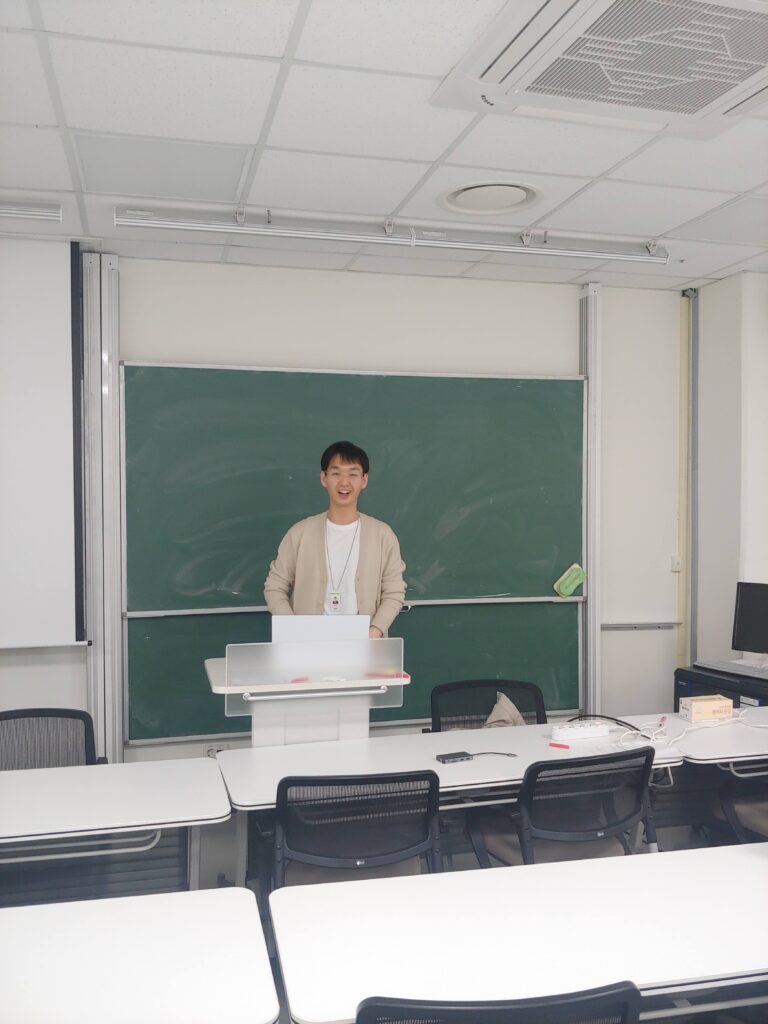
On April 4, our student Dongju Lim gave a talk on the paper “Accurate predictions on small data with a tabular foundation model” at the Journal Club.